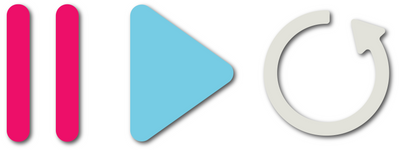May 19, 2019
Andrew PausePlayRepeat
EQ Cheat Sheet
Kick
- Lows at 20-60Hz
- Weight at 60-80Hz
- Knock/Thump at 120-600Hz
- Click/Bite at 104kHz
- Crack at 3-8kHz
Snare
- Balls at 120-250Hz
- Body at 200-400Hz
- Crack around 1kHz
- Snap at 6-8kHz
- If the kick hits high, roll away the snare lows to avoid masking.
Hi-Hats
- Body at 1-3kHz
- SParkle 8-11kHz
- Sibilance at 5-8kHz
- Rollaway lows from at least 300Hz
Percussion
- Depends on the sound and purpose
- Congas have body at 150-200Hz and slap at 5kHz
- Tambourines sparkle above 5kHz
Bass
- Critical power lives at 50-120Hz
- Small changes here have a major impact and can cause a bass to sound fat or thin
- Additional harmonics can be found up until around 8kHz
Sub Bass
- 16-60Hz.
- Keep in mind if you're producing music to be heard in the club, that most club sound systems' low end falls off between 30 and 40Hz.
Bass Guitar
- Botton end at 50-80Hz
- Fat and Chunky around 250Hz
- Growl at 600-700Hz
- Figner noise from 700Hz-1.2kHz
- Snap at 2.5kHz
Lead Synth
- Can be hot anywhere from 60hz (in a bass as lead scenario) to 8kHz.
- It's important that your lead works alongside the bass, not against it, so check for overlapping frequencies.
- If the bass must dominate, cut the lows out of the lead synth.
- In scenarios where the bass acts as your lead synth, remember to cut out the extreme sub bass lows.
Pads
- Find body and warmth around 200-400Hz
- Presence can be found around 1.2kHz
- If your pad is playing a supporting role, cut out lows and some high end.
Keys
- Find fullness as far down as 80Hz
- Presence at 2.4-4kHz
- Rollaway extreme lows to make room for sub.
Electric Guitar
- Body at 250-450Hz
- Presence at 1.3-2.8kHz
- Clarity at 3kHz
- Muddy below 80Hz
- Beware of spiky frequencies
Vocals
- Body at 200-700Hz
- Nasal at 1Khz
- Presence at 4-6kHz
- Male vocal range is from 250Hz-9kHz, with overtones above
- Air at 11-12kHz+
- Rollaway extreme lows below 80Hz
- Be careful when boosting 5-10kHz as it risks adding sibilance.

Leave a comment